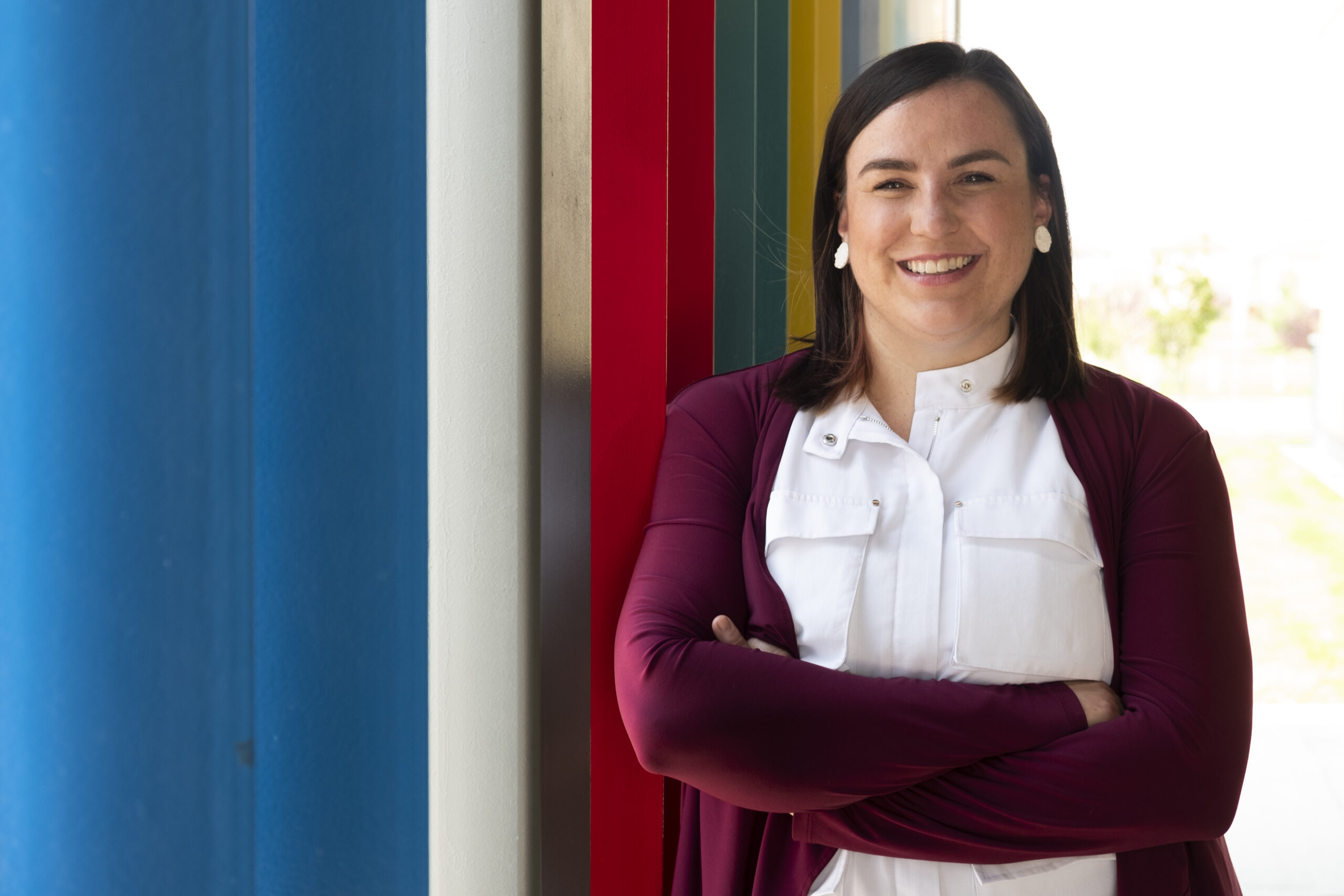I am a community member, educator, youth worker, organizer, and leader – passionate about creating a better world.
My educational background includes a Bachelor of Education and Bachelor of Arts in Social Sciences from the University of Lethbridge, which lead me to pursue community education and a role in public education governance.
I have acted on that passion through my profession – including in leadership with child, youth, and family serving organizations such as YMCA, Boys & Girls Club, and Lethbridge Family Services – Immigrant Services. My volunteerism with organizations such as the Opokaa’sin Early Intervention Society, Womanspace, Rotary, and more have allowed me to contribute to my community’s diverse efforts as well.
I ran for public school Trustee in 2017, and again in 2021 when I was first elected. Serving from 2021 to 2025, I have learned so much about the governance of public education, and have contributed to inclusive policies and practices, financial advocacy and stewardship for public education funding, and have worked to bring forward the voices of our community.
At the centre of all these roles has always been young people, and education.
Statement of beliefs
VISION: I envision a public system and school division which is collaborative, inclusive, and innovative.
MISSION: I will work to
1- protect and build public education.
2 – involve students as co-creators of their education system
3 – foster inclusive schools where we all belong.
ROLE OF THE TRUSTEE
I believe Trustees must govern from a place of guiding oversight, to ensure that the division reflects the priorities of our community and provides access for all young people to their right to education. The Trustee role is not one of operations, developing programming, or making each small financial decision. We must hold the complexity of all we have access to – from public opinion, evidence and data, personal expertise and analysis – in order to make sound decisions for today and the future. We must use our tools of community engagement & advocacy, policy, budget, and direction setting. This means we sometimes must make challenging decisions, and bear responsibility for those.
This is our community. We need to work hard for each other, something I have and will continue to do, using my experience, education, and relationships.
Priority areas
Protecting and building Public Education
Involving students as co-creators of their education system
Fostering Inclusive schools where we all belong
Views on funding
I often quote – “Budgets are Moral Documents.” They tell us what we care about.
ADVOCACY
Alberta public school funding is of course insufficient for the needs of today’s students, staff, and communities. It has been eroded over many years, leaving an immediate challenge in today’s classrooms, and a deficit of years of lost investments. Trustees must advocate for funding for every student.
However – while we’re fighting over pennies when we need dollars, it still matters how we steward what we have.
GOVERNANCE
Trustees must be responsible for maintaining a vision for today’s students, and for those years in the future. Trustees must have the financial literacy at the organizational scope, ability to understand the complex funding and budget landscapes in Alberta, dedication to help make these things understandable. They must also represent the community’s wishes while also mixing in their own expertise gained through access to a great deal of financial data and analysis
How learning conditions can be improved
STUDENT VOICE
Students must not just be the beneficiaries of public education, but the co-creators. Young people are capable learners and self-advocates. We must truly listen to them and recognize their power. At the Trustee level this means engaging them in policy development, budget review, and feedback during all stages of decision making.
COMMUNITY COLLABORATION
As public services have eroded, including education – schools have felt a rising pressure to be everything for students and families. That being said – we have a strong, collaborative, and willing social services sector in our community. Continuing to build stronger collaboration between schools and social services reduces the workload of school staff, refocuses us on learning, and improves student outcomes.
FOSTERING INCLUSIVE SCHOOLS
Our schools must be a place for every young person to access their right to education. Evidence shows that creating accessible, safe, and inclusive schools helps everyone
How trustees and school boards can best support teachers
To borrow a teaching ‘check-in’ – in our division we should
START – promoting greater community collaboration in order to reduce teacher workloads for all the ‘extras’ teachers have had to shoulder over the years.
STOP – board overreach into operations. Trustees must stay at the governance level and respect the boundaries of operations, where teachers should have more professional autonomy and support.
and CONTINUE – investing in the relationship between the Board and teachers. Trustees visit staff meetings, join ATA meetings and events, participate in the ATA Working Conditions Committee, and engage teachers meaningfully in board committees such as Policy Development. This is all to ensure we are deeply listening. This is a special relationship I am proud of, and we should continue to foster this.
Views on the new K-6 curriculum
Teachers as professional educators must be permitted to meaningful engage with the development of new curricula, and as this was an issue in the last election and still is – it’s clear this has not been the case.
While there are curriculum update needs to ensure learners are prepared for their future, this process has been extraordinarily stressful on teachers, students, and families: Unpredictable roll outs, insufficient engagement opportunities, insignificant inclusion of feedback into final versions, and simply not enough resources to undergo such a large transformation.
In our division – we have excellent, professional, and immensely capable teachers who are using their pedagogical skills to ensure that all students learn. When we don’t allow them to have access to meaningful, accurate, developmentally appropriate, or resourced curricula, Alberta makes their job much harder than it needs to be.

